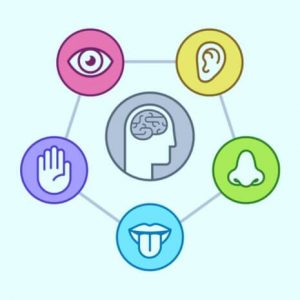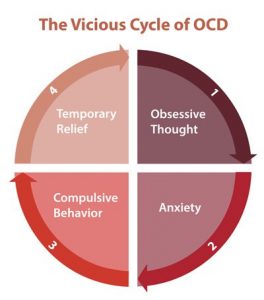By Andy – Arch Care Services
Is there a more misunderstood mental illness than schizophrenia? Be honest, when you think of the term schizophrenia, or think of a schizophrenic person, what comes into your mind? I bet that at least some of you thought of someone with a split personality, someone like Jim Carrey from the film Me, Myself and Irene. I bet that a few of you imagined a murderer, someone who is dangerous and needs to be locked away so they don’t hurt people. It’s ok, it’s not your fault, the media has done a fantastic job of making you believe those things, almost everywhere you find the word schizophrenia in pop culture it’s accompanied by one of these images, but I’m here to tell you that it’s not the case. In fact, the most common symptoms of schizophrenia are:
- A lack of interest in things
- Feeling disconnected from your feelings
- Difficulty concentrating
- Wanting to avoid people
- Hallucinations, such as hearing voices or seeing things others don’t
- Delusions (which could include paranoid delusions) – strong beliefs that others don’t share
- Disorganised thinking and speech
- Not wanting to look after yourself
Not very dramatic, right? Also, did you notice that there’s no mention of split or multiple personalities? That’s because this has nothing whatsoever to do with schizophrenia, and is actually a completely different, and very rare, disorder, now known as Dissociative Identity Disorder. Again, you can thank Hollywood for that misconception!

Difficulty concentrating is one of the most common symptoms of schizophrenia.
So what actually is Schizophrenia then? Well, as you can see from the list above, schizophrenia is actually lots of different things and it can be difficult to define it properly. There are a lot of conditions that have very similar symptoms, and some people even believe that schizophrenia isn’t actually a single diagnosis, but is instead a collection of different disorders and illnesses all presenting at the same time and overlapping. It can develop slowly and in stages, or can appear suddenly and seemingly without warning. Around 1% of people will suffer from schizophrenia at some point in their lives.
Like most mental illnesses, schizophrenia can look and feel very different depending on the person who suffers from it, but one of the more common and distressing symptoms, and the one that makes people the most nervous, is hallucinations. Hallucinations can come in a variety of different forms, and are mostly broken down into the following categories:
Visual – Seeing things that are not present. Visual hallucinations can take the form of objects or people, but sometimes is more like shapes or lights or flashes of colour.
Auditory – Hearing things that are not present. Sometimes people hear voices and sometimes they hear random noises or jumbled sounds. When they hear voices, sometimes those voices appear to be coming from objects or spaces surrounding them and sometimes the voices are inside their heads. Sometimes the voices talk to them, and sometimes they talk to each other or just chatter.
Olfactory – Smelling things that are not present. This could be smells from objects, the environment or the person themselves.
Gustatory – Believing that food or drink has an odd or unexpected taste.
Tactile – Feeling things that aren’t present, such as tickling, stroking or poking.

The categories of hallucinations all relate to one of our five senses.
Sounds pretty unpleasant doesn’t it? Suddenly starting to experience things that no one else is experiencing can be terrifying, and most people who start to develop these symptoms find it incredibly distressing. And remember, it’s not just the experiences themselves that are distressing and frightening, it can also become very difficult to know what is real and what isn’t and trusting your senses would become increasingly difficult. This is why a lot of people who start to develop schizophrenia can isolate themselves inside, struggle to keep working or spending time with friends, and may become suspicious or confused or frightened of seeking help; they don’t know whether the things that they can see and hear and feel are actually happening.
What Causes Schizophrenia?
I get the feeling that this section is going to be the same every time we talk about causes of a particular mental illness! Just like with depression nobody really knows for sure, but there are some things that appear to make it more likely, and in most cases it is a combination of lots of different things. In order to understand the process by which someone starts to develop schizophrenia, we need to think about two separate things; causes and triggers. Causes are things that make someone more susceptible to schizophrenia, triggers are events that can cause schizophrenia to emerge.
Causes
Genetics – There is no ‘schizophrenia gene’ that we’re aware of, but there is strong evidence to suggest that a combinations of various genes make people more vulnerable to the condition. If one twin develops schizophrenia the other twin is much more likely to develop it as well, even if those twins are raised separately. The chances increase if the twins are identical.
Brain Development – Brain scans have shown that people with schizophrenia have subtle differences in the structure of the brain than those without the illness. The evidence is a little messy on this one, as not everyone with schizophrenia has these differences, and not everyone with the differences has schizophrenia, but there is some evidence to suggest that they may be connected.
Neurotransmitters – There is some evidence to suggest that an imbalance between serotonin and dopamine, or the level of sensitivity to these chemicals in the brain, may cause schizophrenia. When schizophrenics are given medication that alters the levels of these chemicals they find that some of their symptoms may decrease.
Pregnancy and Difficult Births – Studies have found that infants who are born with a low birth weight, are deprived of oxygen during birth or who are born early have an increase chance of developing schizophrenia later in life, although we don’t necessarily understand why this is.
Triggers
Stress – Stressful situations such as breakups, house moves, job loss or bereavement are a significant trigger for the development of schizophrenia. It’s important to note that stress on its own won’t cause schizophrenia, but it can cause schizophrenia to develop in individuals who are vulnerable to the illness in the first place.
Drug Use – The use of drugs, particularly cannabis, cocaine, LSD or amphetamines, has been shown to trigger schizophrenia in individuals who are already susceptible. Again, it is not believed that the use of these drugs on it’s own will lead to schizophrenia or related symptoms, but can act as a trigger.

Drug or alcohol use can act as a trigger for schizophrenia.
Three major studies have shown teenagers under 15 who use cannabis regularly, especially “skunk” and other more potent forms of the drug, are up to four times more likely to develop schizophrenia by the age of 26.
Are People with Schizophrenia Dangerous?
Admit it, when we got to the section above where I told you that schizophrenics sometimes hear voices, you probably assumed that these voices were telling them to hurt people. Again, it’s alright if you did, this is another huge misconception that has been propagated by Hollywood for years now. Sometimes you’ll even see it on t-shirts or stickers; “The Voices told me to do it!”. Well, this is another example of a poor understanding of how this stuff actually works. When someone hears voices, they can be positive, negative or completely neutral. They can give instructions or engage in conversation or just make random sounds and noises. I once knew a man who heard voices, and he described them as his ‘affirmations’ because they were always so positive!
So, is there any truth at all to the idea that schizophrenics are more likely to hurt people? Well, that’s slightly more complicated, and depends on which study you’re reading. But the important thing to remember is that even if the chances are slightly higher, the vast, vast majority of people with a diagnosis with schizophrenia will never be violent or hurt anyone. In fact, alcohol intake, gender and age are much better predictors of violence than schizophrenia.
However, there is one person that schizophrenics are much more likely to harm; themselves.
The sad fact is, around 40% of people with schizophrenia will attempt suicide at least once in their life, and around 10-15% will succeed. Compare this to the general population, where around 6-7% of people will attempt suicide at least once, and you start to see that in reality people with schizophrenia are much more likely to harm themselves than they are to commit a violent act against someone else.
How is Schizophrenia Treated?
As with most mental illnesses, schizophrenia is usually treated with a mixture of medication and talking therapies.
Anti-psychotic Medication – Anti-psychotics work by blocking the effects of dopamine in the brain. They can reduce symptoms of aggressive or anxiety very quickly, but generally take longer to start to tackle other symptoms such as hallucinations. This kind of medication is usually only prescribed following a thorough physical check up, because they can have a lot of side effects. More detailed information about anti-psychotic medication can be found by clicking here.
Cognitive Behavioural Therapies – I’ve already spoken about CBT and how it works, so you can find full information on our Understanding: Depression blog. Alternatively you can click here for more information.
There is also some evidence that shows that art therapy can be very effective as a way to alleviate the negative symptoms of schizophrenia in some people, although this should only be carried out by a trained art therapist with experience working with individuals with the diagnosis.
I hope that this blog has been useful, and that you now feel more able to correct some of those harmful stereotypes that we mentioned at the start! It’s important to remember that people with schizophrenia are suffering from an illness and need our support and empathy, and that we shouldn’t always rely on the media and Hollywood to give us an accurate representation of how people with schizophrenia feel, act and relate to others.
If you have any concerns about your own mental health, or if you believe that you are suffering from any of the symptoms of schizophrenia, you should contact your GP straight away. If you feel low and need someone to talk to, you can contact The Samaritans 24 hours a day, 7 days a week on 116 123. If you need immediate help, or are worried that you may harm yourself or someone else, you should always contact 999 immediately.
For more information, you can check out these links:
Mind – Schizophrenia
Information about Hearing Voices


 Our top candidate was Ashley, who really impressed us with his professionalism, relaxed approach and knowledge of his industry. He is clearly a very talented, conscientious young man, and there’s no doubt that he’s going to make a success of himself in the future.
Our top candidate was Ashley, who really impressed us with his professionalism, relaxed approach and knowledge of his industry. He is clearly a very talented, conscientious young man, and there’s no doubt that he’s going to make a success of himself in the future.























